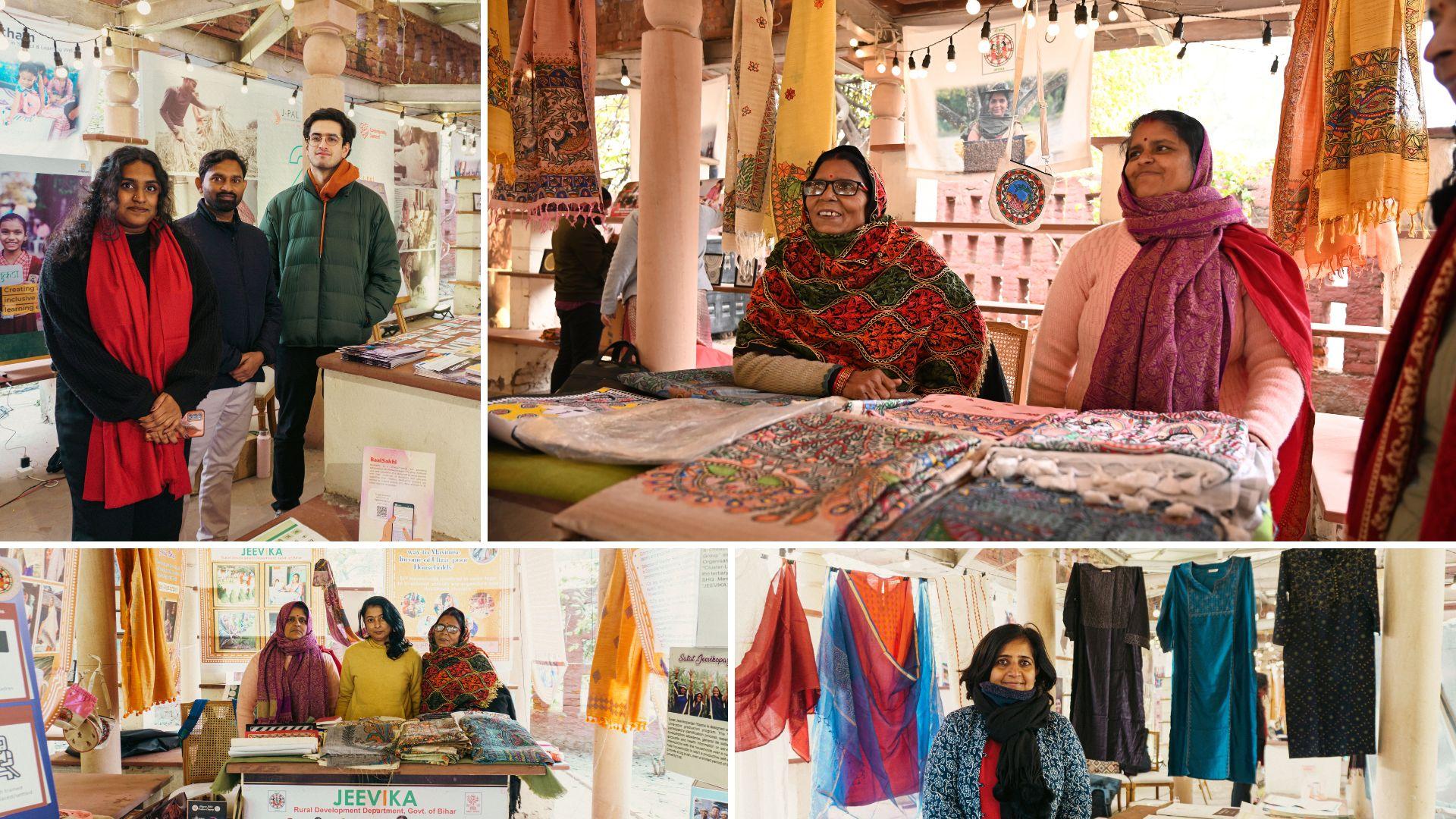
People
The “People” section celebrated our researchers, staff members, and alumni as well as our partners in governments, civil society and philanthropic organizations for believing in our mission.

For the last 20 years, J-PAL has been leading the global movement of fighting poverty with solutions rigorously tested with randomized evaluations.
To mark J-PAL’s 20th anniversary, J-PAL South Asia organized the "Shaping Policy, Transforming Lives" exhibition in Bikaner House, New Delhi. The exhibition celebrated the success of J-PAL South Asia’s partners in the government, academia, civil society, and philanthropic organizations in tackling poverty with scientific evidence and data.
"Shaping Policy, Transforming Lives" offered an immersive experience for people curious to learn more about the ways randomized evaluations are solving some of the biggest development challenges.
An amalgamation of science and arts, "Shaping Policy, Transforming Lives" was not just a celebration of the past, but also a call to action for a safer, healthier and more prosperous future.
In Partnership With

I stand here today in the name of hundreds of researchers, thousands of staff members at the organizations which support their work like J-PAL and IPA, thousands of staff members of the nonprofit organizations who partnered with us over many years, dozens of national and sub-national governments, the individuals, foundations and government agencies who have supported our collective work on behalf of, and with the involvement of, the world’s poor. This work and the culture of learning that it fostered in governments has led to real improvement in the lives of hundreds of millions of poor people.
Esther Duflo, co-founder, J-PAL, at the Nobel Banquet, 10 December 2019
J-PAL has been committed to developing a better understanding of how some of the most vulnerable people amongst us live their lives, the choices they make, and the different ways they overcome challenges. Our experiences are a rich source of stories—uplifting and empowering, but often unnoticed and untold.
J-PAL South Asia’s "Shaping Policy, Transforming Lives" exhibition spotlighted some of these stories, telling them with the help of the written word, photographs, artifacts, and an imaginatively dramatized play.
The exhibition was a time capsule that transported visitors through two decades of J-PAL's transformative impact, on-ground innovations, and the extraordinary people and partners who made it happen.
Hear from Shobhini Mukerji, executive director of J-PAL South Asia, on how the idea of an immersive exhibition came to fruition.
The three pillars of our exhibition:
People
The “People” section celebrated our researchers, staff members, and alumni as well as our partners in governments, civil society and philanthropic organizations for believing in our mission.
Impact
The “Impact” section showed the groundbreaking effects of applying evidence from randomized evaluations to policies designed to help people living in poverty.
Measurement
The “Measurement” section was a visual representation of the rigor that goes into our work but usually stays within the confines of academic papers, survey sheets and field maps.

Members of the Aagaaz Theatre Trust performed “Pradhan Banegi” [She’ll Be a Leader], an inventive play that showed us the way to create a gender-equal world.
“Pradhan Banegi” tells the story of Chunni, a young girl who dreams of becoming the leader of her village. Chunni comes up with a plan to stand in the elections with help from her friend, Monu. Their plan is initially met with resistance from Chunni’s mother, Damini. But Monu succeeds in convincing her.
At last, Damini and Monu become allies to start campaigning for Chunni so she can become the next leader of their village.
“Pradhan Banegi” drew upon the work of researchers affiliated with J-PAL on promoting progressive gender attitudes among young adolescents and improving women's political representation through quotas.

We had a stellar line-up of speakers, who, with a generous serving of wit and humor, dealt with some of the most urgent policy problems India and the world are facing.
Esther Duflo, co-founder of J-PAL, in a conversation with Shrayana Bhattacharya, best-selling author and economist, World Bank, laid out a roadmap to design social protection programs for the 21st century that can tackle the twin challenges of gender discrimination and climate change.
Iqbal Dhaliwal, global executive director of J-PAL, showed the various policy wins in India that are informing social programs around the world.
And a few long-time friends of J-PAL South Asia gave our guests a healthy dose of laughter with their humorous reflections on working with us over the years.

"Shaping Policy, Transforming Lives" offered a space for our partners to share their amazing work with the wider community. It led to some wonderful conversations and sparked several innovative ideas on putting science in the service of society.
Our guests were also treated with a delightful array of handicrafts, books, and merchandise that filled the red sandstone pavilions of the Bikaner House. Some of them even got a chance to try out carpet weaving.
The exhibition featured the works of:
